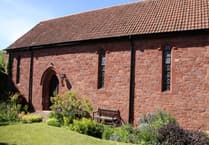ONLY one in 10 of people in North Devon registered as needing a home will be found one this year, according to new figures.
Councillors called the housing crisis “depressing and overwhelming” as they heard that outside of Exeter, North Devon Council receives more approaches from homeless people than any other local authority in the county.
More vulnerable people are going into temporary accommodation because there aren’t enough private rental homes and support available, and demand for homes for single people far outweighs supply.
Speaking to North Devon Council’s strategy and resources committee, housing manager Sarah Bentley said 985 people who were homeless or facing homelessness had sought help from the council over the past year. Only Exeter was higher in the county with 1,135 approaches.
She said in neighbouring Torridge, 500 fewer people had approached the council for help.
Miss Bentley said 2,300 applications had been made to Devon Home Choice for social housing in North Devon, which has 4,800 properties but only 250 vacancies a year.
“That means that only 11 per cent of those people registered with Devon Home Choice will be housed,” she said.
More than half of the applications were from single people who are unable to afford one-bed properties in the private sector.
People are struggling to move on from council-provided temporary accommodation because housing allowance doesn’t cover the cost of rent, which can be £200 more a month.
She said a new cohort of homeless people are in work but on low incomes and if faced with a Section 21 ‘no fault’ eviction notice are “very unlikely” to find another affordable home of the size they need.
“These people have used up all the favours by family and friends and credit card limits. We are seeing a lot more people in debt now.”
She hoped North Devon will get a share of a funding pot from Devon County Council to prevent homelessness, but demand would be high given the funding had been reduced by two thirds this year to £500,000.
The money is for supported accommodation and is vital for The Maples, a property in Barnstaple which offers nine beds and 24-hour support for single people with drug and alcohol addiction and mental health problems.
“To lose that resource would have a massive impact on us,” she said.
Councillors were told that Barnstaple’s Freedom Centre, which works with homeless people, offers emergency accommodation and helps those suffering with debt, poverty, addiction and poor mental and physical health is seeing more people than ever – around 65 a day.
In addition, housing is needed for Afghan and Ukrainian refugees, NHS staff from overseas, care leavers and prisoners released early under new government policy.
The housing manager said the council is trying to remove age restrictions on some social homes as there is a bigger demand from 45-year-olds than 65-year-olds.
Chairman of the council Cllr David Clayton (Lib Dem, Barnstaple with Westacott) said: “This is quite depressing. Housing is going to be the biggest hot potato for us. The problem is overwhelming.”
Cllr Malcolm Prowse (Ind, Bratton Fleming) said the council needed to amend its policies and talk to developers about changing the size of homes to meet demand.
“I didn’t realise that 51 per cent of the people needing a home are single folk. Our planning documents nowhere near reflect this. We do not seem to be talking to developers with that in mind but it is something that could be tackled quite quickly.”
Cllr David Knight (Lib Dem, Roundswell) suggested the authority look at Cornwall’s approach in providing modular housing which was “small but perfectly formed” as a way of tackling the shortage of one-bed homes.
The government’s plan to scrap ‘no fault’ Section 21 eviction notices, which allows landlords to serve tenants with two months’ notice to quit, has been welcomed by local authorities, but councillors were warned that landlords were “nervous” over the move and many are looking to sell up.
In North Devon, the number of temporary housing units in use was 75 at the beginning of this month, 25 by single people, and there were 24 rough sleepers, 20 of whom had connections to the area.
Alison Stephenson




